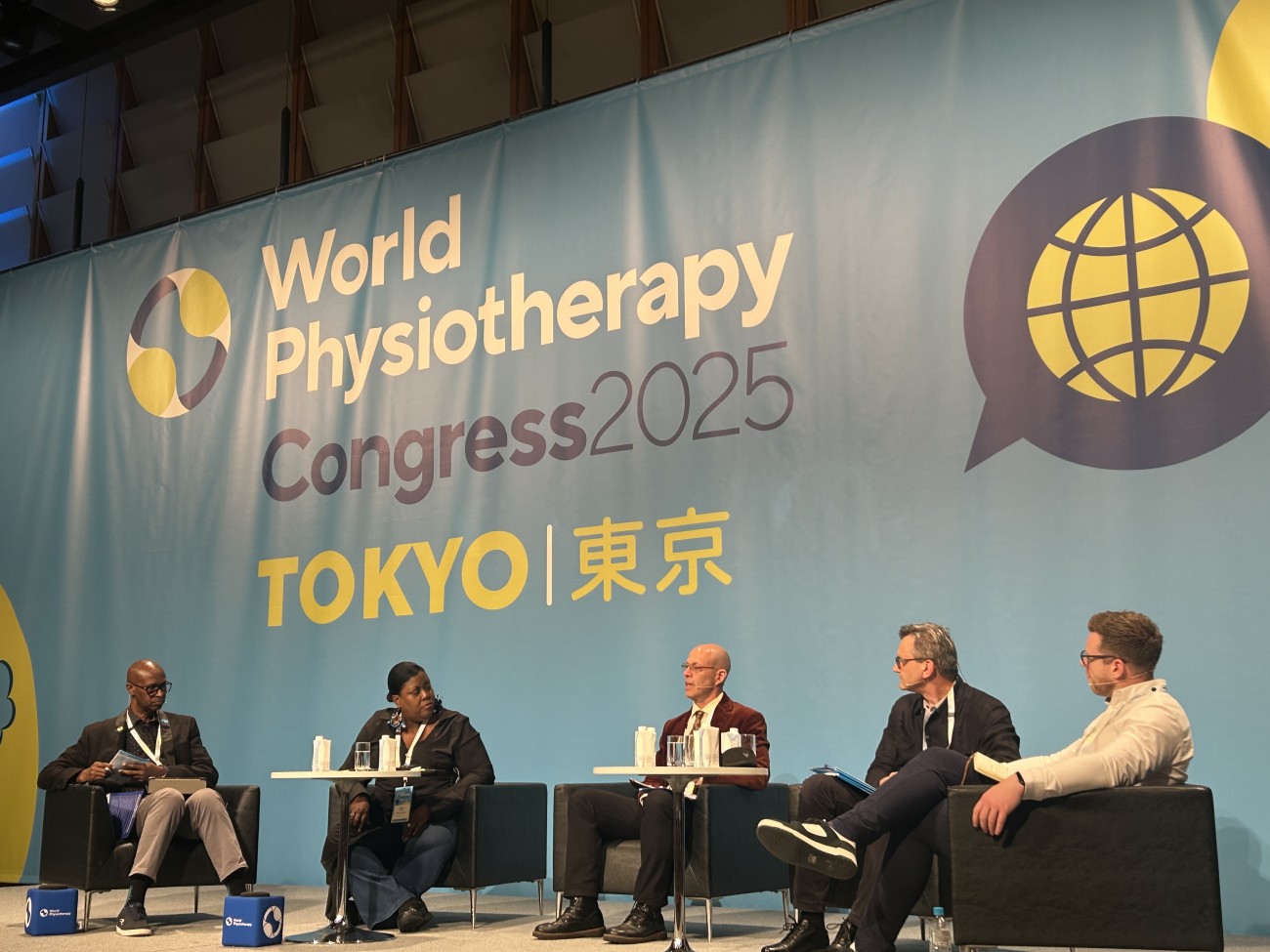The global physiotherapy workforce is under pressure. While workforce density varies widely, from 0.3 per 10,000 people in the Africa region to 13.7 in parts of Europe, the shared challenges are clear: recruitment, retention, training, recognition and advocacy.
These issues took centre stage in a session at World Physiotherapy Congress 2025. The session, The physiotherapy workforce – what we have and influencing what we need for the future, was chaired by Jean Damascene Gasherebuka (Rwanda). Informed by the findings of the 2024 World Physiotherapy annual membership census, the session explored the data behind global trends, and the strategies required to address them.

Stacy de Gale (Trinidad and Tobago) opened with a powerful question. “Stand up,” she said, “if you think there are enough physiotherapists in your context.” Of a full congress hall, just one person stood. That moment set the tone for a session focused not only on workforce numbers, but on visibility, equity, and system-level change.
Stacy spoke of the need to amplify the voices of those working in under-resourced public systems, particularly across the Caribbean. “We need to create a global physiotherapy village,” she said. “We must think globally, but act locally—and recognise that no solution will be one-size-fits-all.”
Ashley James (UK) spoke to the mismatch between graduate supply and service need. “Workforce planning needs to be smarter,” he said, calling for stronger alignment between education and service models. Ashley noted the profession’s ability to solve complex care problems and added, “We have to advocate for ourselves using data.”
Roger Herr (US) brought a funding and policy perspective, drawing on his leadership in post-acute care and experience with quality reporting and workforce planning in the United States. He encouraged the profession to be proactive. “If we’re not at the table when workforce decisions are being made, we’re at risk of being left out, or legislated without.”
Maciej Płaszewski (Poland) reflected on translating international recommendations into practice in Poland. He described recent efforts to introduce guideline-based rehabilitation and stressed the need to adapt rather than adopt: “Workforce change isn’t about replication, it’s about adaptation.”
Jean reinforced the session’s central message: having more physiotherapists is only part of the solution. Distribution, skill alignment, conditions, and professional recognition all shape workforce effectiveness. “The right physiotherapists, with the right skills, in the right place, that’s what matters.”
The session closed with a call for global action, adapted to local needs, to improve working conditions, strengthen career pathways and make better use of workforce data.
As World Physiotherapy reflects on the 2024 annual membership census, one message stood out: workforce challenges demand shared solutions, bold leadership and action grounded in evidence and experience.

